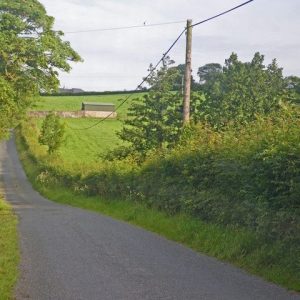From Eamonn Ryan’s closing speech to the Convention this phrase caught my ear
“Every Community is important and no Community will be left behind”.
Attendance at the Convention in Waterford was impacted slightly by the withdrawal of labour of Bus Eireann drivers and closure of Waterford Railway station, but it was a very positive meeting preceeded by a presentation by Peter Wilcox of Greenpeace on whose boats Senator Grace O’Sullivan once served, good debates and friendship.
 A common theme running through the Convention was rural development; many of the problems in Dublin would be relieved by national development of resourses, balancing supply and demand, and ending false competion for those same resourses by vested interests. The lack of joined-up thinking. To quote the ‘Green Party Transport Policy ‘ for one – “The primary role of the State in transport provision is to legislate, regulate and fund, where required, a sustainable transport system for the social, environmental and economic benefit of its people.’ To have public and private coaches and a public rail network in direct competition, in a race to the bottom, on routes between large cities is not the best use of tax money . Destroying local common resources on fiscal grounds insteading of supporting communities to benefit local living is wrong.
A common theme running through the Convention was rural development; many of the problems in Dublin would be relieved by national development of resourses, balancing supply and demand, and ending false competion for those same resourses by vested interests. The lack of joined-up thinking. To quote the ‘Green Party Transport Policy ‘ for one – “The primary role of the State in transport provision is to legislate, regulate and fund, where required, a sustainable transport system for the social, environmental and economic benefit of its people.’ To have public and private coaches and a public rail network in direct competition, in a race to the bottom, on routes between large cities is not the best use of tax money . Destroying local common resources on fiscal grounds insteading of supporting communities to benefit local living is wrong.
 Oil is not going to run dry any time soon. But oil, coal and gas are fossil fuels and their burning must be reduced asap, even eliminated, as a key element in climate change; and a cause of illness in public health. Global trends, starting from improved farming and demands for services, are growing cities and towns. But some countries respond to beaucratic centralisation by actively promoting the growth of local resources; high-speed electric-rail serves larger towns, frequent slower trains make local stops supporting schools, hospital visits, commuters, with each stop served by electric taxis, shared cars, post-buses and cycling from rural village communities, supporting bundled service centres (post offices, banks, shops, pubs, etc) for seniors, students and employees in local industry, tourism, farming, horticulture, craft beer, tech and support, spreads population. It is almost a circular-economy already!
Oil is not going to run dry any time soon. But oil, coal and gas are fossil fuels and their burning must be reduced asap, even eliminated, as a key element in climate change; and a cause of illness in public health. Global trends, starting from improved farming and demands for services, are growing cities and towns. But some countries respond to beaucratic centralisation by actively promoting the growth of local resources; high-speed electric-rail serves larger towns, frequent slower trains make local stops supporting schools, hospital visits, commuters, with each stop served by electric taxis, shared cars, post-buses and cycling from rural village communities, supporting bundled service centres (post offices, banks, shops, pubs, etc) for seniors, students and employees in local industry, tourism, farming, horticulture, craft beer, tech and support, spreads population. It is almost a circular-economy already!
Decentralisation will become the trend. Support your local shops, plumbers, growers, garda, bus or train driver living in your community, whether living in Inchicore, Walkinstown or Bohola! Local electric power need not be giant wind-mills; it can be off-shore wind, tidal, solar, bio-fuel, biomass, run-of-river, and construction efficency and refurbishment in building reduces fuel demand, increases comfort, and saves money.
P.S.: The Irish Times of 31st March 2017 reported a speech by Mr John Moran, the former secretary general of the Department of Finance, in which he said ‘Ireland needs to “ditch our car-dependent suburbia model” of development and devise a new spatial strategy to take the pressure off Dublin’; ‘To achieve a better regional spread, he called for greater transport options and connectivity between cities. He also suggested that planners should seek to build a counterbalance to Dublin’s power along the western seaboard. “Putting this in place will however require a complete mindset change so that we reward – not penalise – those willing to chuck the idea of two cars and a garden outside the front door, to live the compromise of density rather than choose individualism as their preferred model of living,” said Mr Moran.’
P.P.S.: Where I differ from Mr Moran is to demand greater state investment in rural towns to maximise past investment in facililties, not just in 6 or 7 gateway cities. For too long the ‘silo-mentality’ of Irish thinking has been to withdraw services from towns and even suburbs. Closing Garda stations to save money, closing post offices to save money, closing bank branches, closing rail-stations, rail-lines, then bus services, closing schools to bus pupils miles, closing swimming pools, etc. Some have suggested civic offices providing a focal point for services provided by post offices, garda stations, etc. I would go futher tying local bus routes around housing estates and villages to local rail, Dart and Luas stations to encourage population growth and demand for services.
To quote John Moran again: ‘ People want more and more to be able to walk or take efficient and comfortable public transport to their work, the shop, the cinema, to sport and to the crèche. We should encourage this. It is good for the environment and for the rural Ireland we love so much”.

